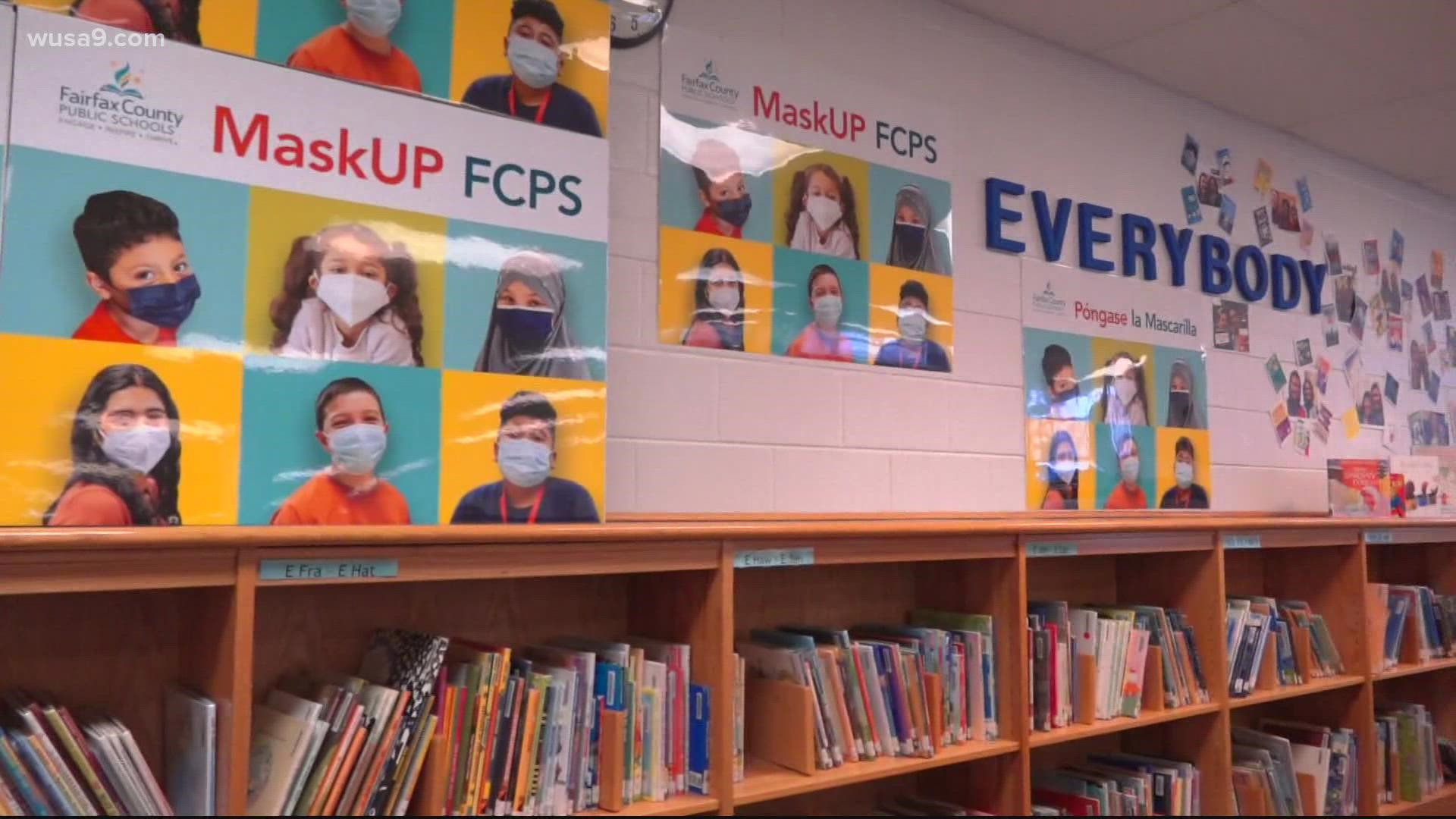RICHMOND, Va. — Several school boards across Virginia have come together to file a lawsuit against Republican Gov. Glenn Youngkin after his executive order to make masks optional in schools in the Commonwealth.
The school boards of Alexandria City, Arlington County, City of Richmond, Fairfax County, Falls Church City, Hampton City and Prince William County have all joined forces in a lawsuit to "defend the right of school boards to enact policy at the local level, including policies that protect the health and wellbeing of all students and staff," according to a press release.
The seven school boards are challenging the question of whether an executive order can supersede a decision the school board makes for their school community. The boards note that the action represents over 350,000 students across the state.
The boards also want to raise the issue that Youngkin overstepped a lawfully adopted statute with his recent executive order to make masks optional in schools. The 2021 law says each Virginia school board is required to offer in-person instruction that adheres “to the maximum extent practicable” to COVID-19 mitigation guidelines from the federal Centers for Disease Control and Prevention. The CDC currently recommends universal masking by anyone 2 and older, regardless of vaccination status.
"Without today’s action, school boards are placed in a legally untenable position -- faced with an executive order that is in conflict with the constitution and state law," the groups filing the suit said in a joint statement. "Today’s action is not politically motivated. These seven school divisions would welcome the opportunity to collaborate with the governor to ensure the safety and welfare of all students. This lawsuit is not brought out of choice, but out of necessity. "
Fairfax County School Board Chair Stella Pekarsky said the lawsuit comes down to the separation of powers. When asked if the district will follow the order if the court upholds it, Pekarsky said not to get ahead of ourselves.
"We feel very confident we have sound argument based on constitutional authority and we're confident the courts will uphold that," Pekarsky said.
Prince William County school board Chairman At-Large, Babur B. Lateef, M.D., released the following statement regarding the filing of joint legal action on Executive Order 2:
“It is our highest priority to have students learning in-person, and to do so in a manner that protects the well-being of all students and staff. It is also important that School Boards retain their local decisional authority to take actions deemed necessary for the safety of their school community. With this legal filing, we do not seek to make a political statement. We simply seek clarification on the conflict between the Governor’s recent Executive Order and existing state and federal law. Due to the confusion, this has caused our families and our schools, we are seeking answers from the court as rapidly as possible. As Governor Youngkin also stated, we ask our community to please support our principals until the courts have resolved the question. We all want to move beyond COVID-19, including masking requirements, and we will do so when possible, in a thoughtful and safe manner for all.”
A group of parents alongside the Chesapeake school board and superintendent also filed a lawsuit against the Youngkin administration, arguing that the executive order was in violation of state law. They are urging the Supreme Court of Virginia to act quickly.
Youngkin, meanwhile, on Friday said he's confident his administration will win a court battle over his executive order allowing parents to opt out of school mask mandates for their children, but he advised parents to "listen to their principal" until the Supreme Court of Virginia issues its ruling.
Legal experts said unlike the Chesapeake lawsuit, the second legal action involving the school districts can appeal to the Virginia Supreme Court if the lower court upholds the order.
"I think the school districts who are challenging the governor's order are very likely to be successful," GW Law professor Peter Meyers said.

